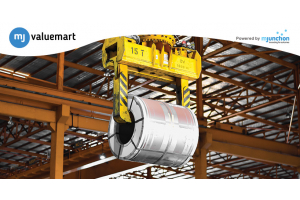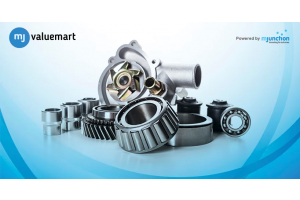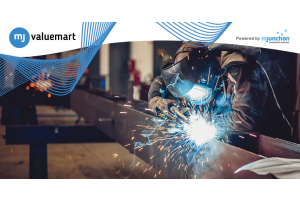Planning to Buy Industrial Spares? Check This Read on Common Problems Associated With the Maintenance of Industrial Spares

In industrial settings, spare parts ensure safe and reliable operation of machinery. They can also help businesses reduce costs and maintain a competitive edge in their industry. If you are planning to buy industrial spares, knowing how to maintain them is important. As one of the leading e-marketplaces for unused and genuine MRO spares, we share with you some of the common problems related to maintenance and management of industrial spares:
1. Lack of preventive maintenance: Maintenance is essential to maximising the lifetime and efficiency of industrial spare parts. Poor maintenance of industrial spares can lead to increased downtime, higher repair costs due to premature wear and tear, shorter equipment lifespan, and increased risk of accidents and injuries. By taking a proactive approach to maintenance, potential problems can be identified and addressed before they turn into larger and more expensive issues.
2. Poor storage conditions: The conditions in which industrial spares are stored can affect their functionality. Industrial spares need to be stored in a cool, dry place to prevent moisture and humidity from damaging the parts. Extreme temperatures can also damage spare parts, so storage areas should be kept at a consistent temperature. Industrial spares can be damaged when stored in dirty or dusty environments. Hence, storage areas should be kept clean and free of debris. Some industrial spare parts may be sensitive to light and can degrade if exposed to direct sunlight or fluorescent lighting. For this reason, it is essential that these parts be stored in a dark, enclosed area. Also, industrial spares should be clearly labelled with part numbers, descriptions and other relevant information so that when a machine breaks down the right parts can easily be located.In order to prevent the theft or unauthorised access of valuable industrial spares, storage areas should be secured.
3. Misplacement or loss: Poor storage practices in businesses can have serious consequences, including misplacement or loss of important industrial spares. This can have significant consequences that negatively impact operations and profitability of the business. When industrial spares are misplaced or lost, it can be difficult to perform necessary repairs and maintenance. This can cause downtime and slow production—without the proper spare parts, equipment may be out of commission for extended periods while waiting for replacements. The loss or misplacement of industrial spares can increase costs, leading companies to purchase replacement parts (which are often expensive) and pay for faster shipping.
4. Inadequate training: Mishandling of spares can lead to a myriad of problems, including equipment damage, safety hazards, and downtime. Therefore, it is important to ensure that staff members who are responsible for handling and installing spares are adequately trained.
Maintenance personnel should receive training on how to handle and install different types of industrial spares, including identifying them correctly. This training should cover both theoretical and practical aspects.
5. Difficulty in sourcing: Difficulty in sourcing industrial spare parts is a common problem that falls under spare parts management. Effective spare parts management involves ensuring that the right parts are available when they are needed. There can be different reasons for sourcing difficulties such as the manufacturer has stopped making the parts, the parts are hard to find, or supply chain disruptions.
Effective spare parts management can have a positive impact on business operations. By implementing effective inventory management strategies, staying proactive about potential supply chain issues, and exploring alternative solutions, businesses can minimise the risk of downtime and ensure smooth operations.





